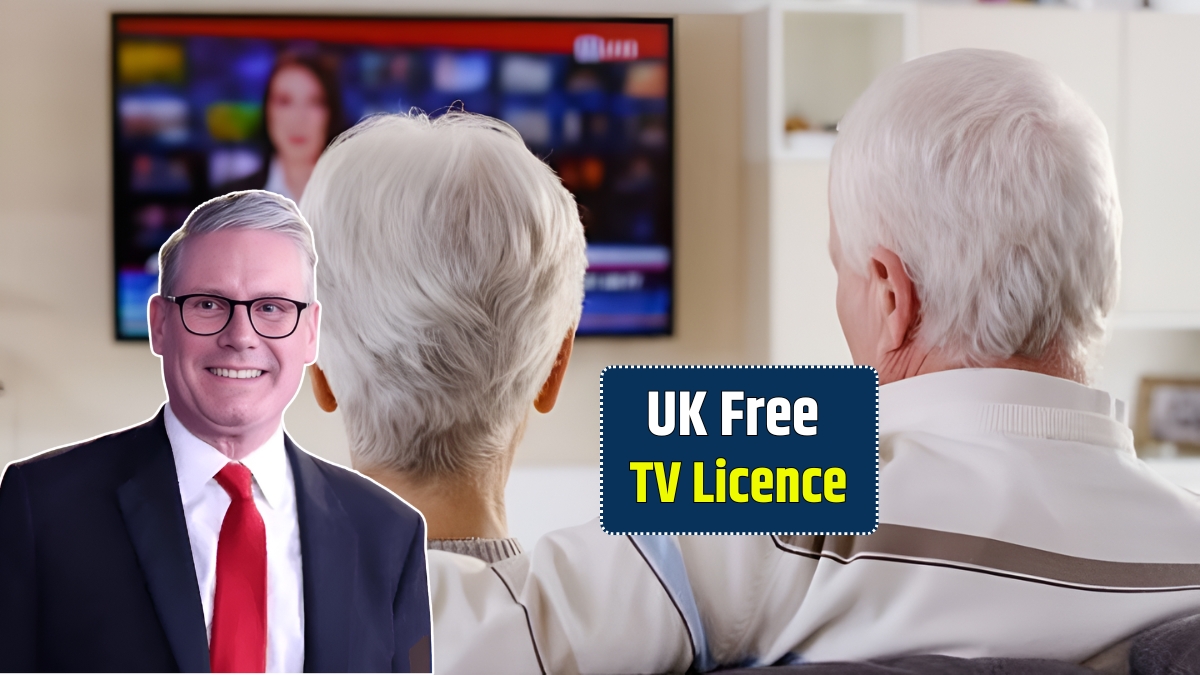The UK Government has officially unveiled an exciting new proposal aimed at easing the financial burden on older citizens a Free TV Licence Scheme for individuals aged 57 and above. Announced as part of the Government’s 2025 pension support review, this plan has generated strong reactions from pensioners, campaign groups, and financial advisers alike.
While some see this as a long-overdue step toward fairness, others remain cautious, asking who will qualify and whether the rollout will be nationwide or limited to pilot areas. Here’s what we know so far, what it means for UK pensioners, and how to apply once the scheme launches.
What Exactly Is the Free TV Licence Scheme?
The 2025 Free TV Licence Scheme for over-57s is designed to give older adults free or discounted access to television, including BBC iPlayer. Unlike previous pensioner schemes, which mainly targeted over-75s receiving Pension Credit, this initiative extends the benefit to a younger age group, potentially helping millions of households.
Government ministers have explained that television remains a key source of news, entertainment, and companionship for older citizens especially for those living alone or managing health issues. The new scheme is intended to make public broadcasting more inclusive and fair, aligning with the Government’s broader cost-of-living relief strategy.
Why This Scheme Is Back in the Spotlight
The TV licence debate has been ongoing since the BBC scrapped free licences for over-75s in 2020, leaving thousands of pensioners paying the annual £169.50 fee. The decision caused widespread criticism and campaigns from groups advocating for older people.
Now, with elections approaching and inflation still impacting household budgets, the Government appears ready to address the issue. For many pensioners, this move is both a financial relief and a symbolic gesture acknowledging their lifelong contributions.
Who Will Be Eligible for the 2025 Free TV Licence?
While final details are pending, early guidance from the Department for Culture, Media and Sport (DCMS) suggests that eligibility will likely include:
- UK residents aged 57 or older.
- Individuals receiving Pension Credit or other qualifying benefits.
- Those who can demonstrate financial hardship or disability support.
The scheme will initially launch in selected regions in mid-2025, expanding nationwide by 2026. Citizens will need to apply via GOV.UK or confirm eligibility through the Department for Work and Pensions (DWP).
How to Apply for the Free TV Licence
Applying for the scheme is expected to be straightforward. Once live, applicants will likely follow a digital-first process through the TV Licensing website or GOV.UK portal.
Here’s how to prepare in advance:
- Check your age and proof of identity – passport, driving licence, or other official ID.
- Confirm benefit status – ensure you have documentation for Pension Credit or DWP benefits.
- Register your contact details – email and address for future updates.
- Monitor GOV.UK updates – guidance will be posted as soon as the scheme is active.
Paper-based applications will remain available for those without internet access, ensuring everyone has the opportunity to apply.
Pensioners’ Reactions So Far
Responses have been mixed but generally positive. Many pensioners have welcomed the move as a “step in the right direction,” though some have questioned why the benefit starts at 57 rather than the traditional 60 or 65.
Campaign groups such as Age UK and Silver Voices have called the announcement a partial victory, urging the Government to restore universal free licences for all older citizens. One Manchester pensioner commented, “If they’re helping people over 57, it’s good news but it mustn’t just be another promise that disappears.”
Economic and Social Implications
The scheme has potential benefits beyond just financial relief. Free TV licences could leave more disposable income in pensioners’ hands, boosting local economies. Moreover, access to TV and online services like BBC iPlayer can help combat loneliness and social isolation, a growing concern among older adults since the pandemic.
Experts also note that while this is a welcome gesture, it should not replace broader pension and cost-of-living support. Advisers encourage pensioners to review other benefits, including Winter Fuel Payments, Council Tax Reduction, and Pension Credit, to maximise their financial security.
Challenges Ahead
Despite the positive announcement, several issues remain:
- Funding for the scheme is not yet finalised.
- Regional rollout may take time before nationwide coverage.
- Clear guidance and application support must be provided to avoid confusion.
Without addressing these challenges, critics warn the scheme could face the same controversies that arose with the over-75s licence changes in 2020.
Conclusion
The 2025 Free TV Licence Scheme for over-57s represents a significant shift in UK pension policy. It offers both financial relief and recognition for older citizens, while also addressing social concerns such as isolation and access to information.
For millions of Britons approaching retirement, this initiative could mean one less monthly expense and a renewed sense of dignity. If implemented effectively, it may become one of the most popular Government policies for pensioners in recent years.
FAQ
1. When will the free TV licence scheme start?
The scheme is expected to begin mid-2025, initially in selected regions, with nationwide coverage by 2026.
2. Who qualifies for the free TV licence?
UK residents aged 57 or above, especially those on Pension Credit or low income, are likely to qualify. Final rules will be confirmed after a public consultation.
3. How do I apply for the scheme?
Applications will be submitted online via the TV Licensing website or GOV.UK. Paper applications will also be available for those without internet access.
4. Is this scheme permanent?
The Government has not confirmed permanent status, but the plan is intended to roll out fully by 2026 and may become a long-term benefit.
5. Can this help with social isolation?
Yes. Free access to TV and BBC iPlayer can provide entertainment and news, helping older adults stay connected and reduce feelings of loneliness.



